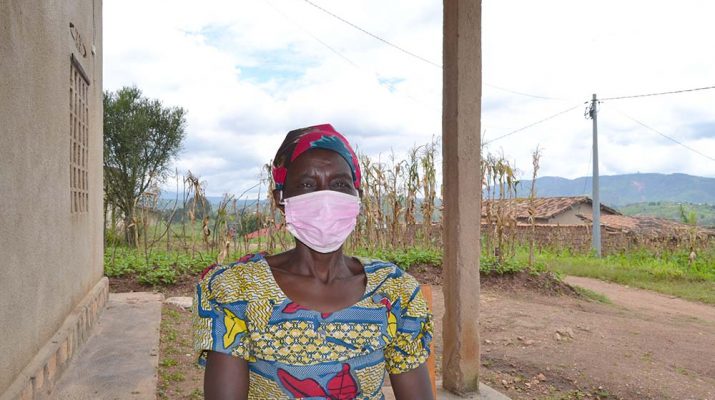
Poor post-harvest handling remained the number one problem for farmers in Nyarunyinya due to poor methods and the use of rudimentary tools. In this rural area of central Rwanda, farmers lose up to 40% of agricultural products during post-harvest processes, as something is lost at every stage, from the start of harvesting to the final selling point. Thanks to UN Women’s project launched to support women farmers, Theresa Mukashyaka and other women farmers have significantly improved their post-harvest handling.
Born in a family of farmers, Theresa Mukashyaka and her parents practiced subsistence agriculture and cultivated beans, cassava, sweet potatoes with various vegetables among other crops.
At 59, Mukashyaka has been practicing agriculture her entire life, as the only available profession for her. She considers agriculture a noble work and wishes it could be improved. In Nyarunyinya, where Mukashyaka was born, many farmers remain vulnerable regardless of generational farming families as they continue practicing poor agricultural methods.
“I didn’t became a farmer by choice but inherited from my parents the profession as well their agricultural practises which remained the same for years giving us poor proceeds until I was trained in good agricultural practises,” says Mukashyaka.
When UN Women and its implementing partner, Rwanda Development Organisation (RDO) launched the project to support women farmers, Mukashyaka’s cooperative, Tuzamurane Cyeza Cooperative, was selected because of its sizeable number of women members totalling to 401 women from a combined total of 865 members
All the members of the cooperative were trained in the perspective of women’s empowerment, provided with good agricultural practices and better methods about post-harvest handling and storage of grains. The project facilitated the acquisition of different post-harvest equipment like tarpaulins, hermetic bags, moisture meters and drying sheds, which helped them to improve the quality of their production.
Mukashyaka started to notice the immediate change on her 20 acres garden at home when production almost jumped tenfold when she applied the newly learned skills.
Before 2017, she was producing 80kgs from her 20 acres garden which increased to 700kgs in 2018. The production keeps on increasing as she applies good practices.
She underlines: “Before no one was paying attention to some of those poor methods but today, I can’t even think about how one can harvest maize without tarpaulins or heaping the harvest on dirt grounds”. The provided drying shed helped them to dry maize and the hermetic bags helped in storing their home food.
“We used to store in normal bags and our production would get damaged. Sometimes we would even use chemicals that are dangerous to our health. Now, this doesn’t happen anymore thanks to RDO and UN Women who provided hermetic bags that don’t require to use chemicals,” explains Mukashyaka.
